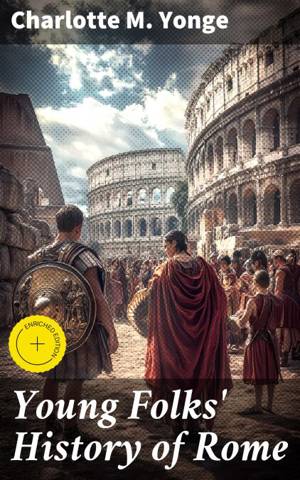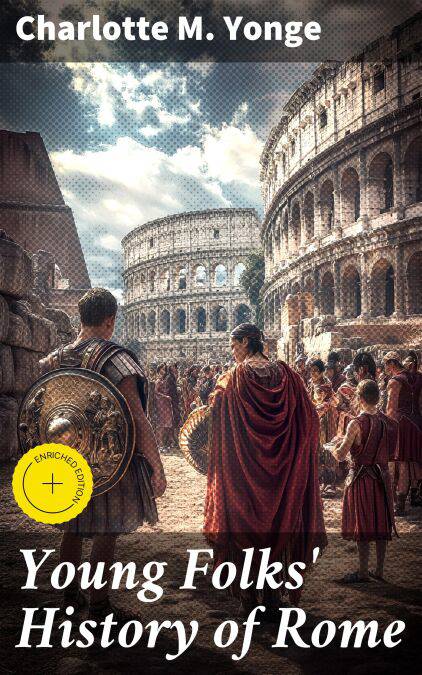
- Retrait en 2 heures
- Assortiment impressionnant
- Paiement sécurisé
- Toujours un magasin près de chez vous
- Retrait gratuit dans votre magasin Club
- 7.000.0000 titres dans notre catalogue
- Payer en toute sécurité
- Toujours un magasin près de chez vous
Young Folks' History of Rome EBOOK
Enriched edition. A Journey Through Ancient Rome: Battles, Rulers, and Daily Life in the Greatest Empire
Charlotte M. Yonge
Ebook | Anglais
1,99 €
+ 1 points
Description
In "Young Folks' History of Rome," Charlotte M. Yonge presents a captivating and accessible narrative that invites young readers into the complex world of ancient Rome. Written in an engaging style that blends storytelling with educational content, Yonge employs vivid characters and events to illustrate Rome's rise and fall, paying special attention to its cultural, political, and social transformations. The work stands as a testament to the 19th-century trend in children's literature that aimed to educate while enthralling, and Yonge's meticulous attention to historical detail ensures that the text resonates with both young audiences and adult educators alike. Charlotte M. Yonge, a prominent Victorian novelist and educator, was deeply committed to the advancement of children's literature. Her own upbringing in a scholarly family and her extensive knowledge of classical literature instilled in her a passion for imparting historical knowledge to children. Yonge's writing often reflects her belief in the moral and intellectual upbringing of youth, making "Young Folks' History of Rome" not just a retelling of history but also a tool for shaping character and citizenship in the next generation. This book is a must-read for educators, parents, and young aspiring historians. Its engaging prose and rich illustrations strike a perfect balance between entertainment and education, making ancient Roman history approachable and inspiring. Yonge's work encourages young readers to understand the foundations of our civilization, which remains relevant today.
In this enriched edition, we have carefully created added value for your reading experience:
- A succinct Introduction situates the work's timeless appeal and themes.
- The Synopsis outlines the central plot, highlighting key developments without spoiling critical twists.
- A detailed Historical Context immerses you in the era's events and influences that shaped the writing.
- A thorough Analysis dissects symbols, motifs, and character arcs to unearth underlying meanings.
- Reflection questions prompt you to engage personally with the work's messages, connecting them to modern life.
- Hand‐picked Memorable Quotes shine a spotlight on moments of literary brilliance.
- Interactive footnotes clarify unusual references, historical allusions, and archaic phrases for an effortless, more informed read.
In this enriched edition, we have carefully created added value for your reading experience:
- A succinct Introduction situates the work's timeless appeal and themes.
- The Synopsis outlines the central plot, highlighting key developments without spoiling critical twists.
- A detailed Historical Context immerses you in the era's events and influences that shaped the writing.
- A thorough Analysis dissects symbols, motifs, and character arcs to unearth underlying meanings.
- Reflection questions prompt you to engage personally with the work's messages, connecting them to modern life.
- Hand‐picked Memorable Quotes shine a spotlight on moments of literary brilliance.
- Interactive footnotes clarify unusual references, historical allusions, and archaic phrases for an effortless, more informed read.
Spécifications
Parties prenantes
- Auteur(s) :
- Editeur:
Contenu
- Nombre de pages :
- 3378
- Langue:
- Anglais
Caractéristiques
- EAN:
- 4057664120083
- Date de parution :
- 19-11-19
- Format:
- Ebook
- Protection digitale:
- Digital watermarking
- Format numérique:
- ePub

Seulement chez Librairie Club
+ 1 points sur votre carte client de Librairie Club
Les avis
Nous publions uniquement les avis qui respectent les conditions requises. Consultez nos conditions pour les avis.





